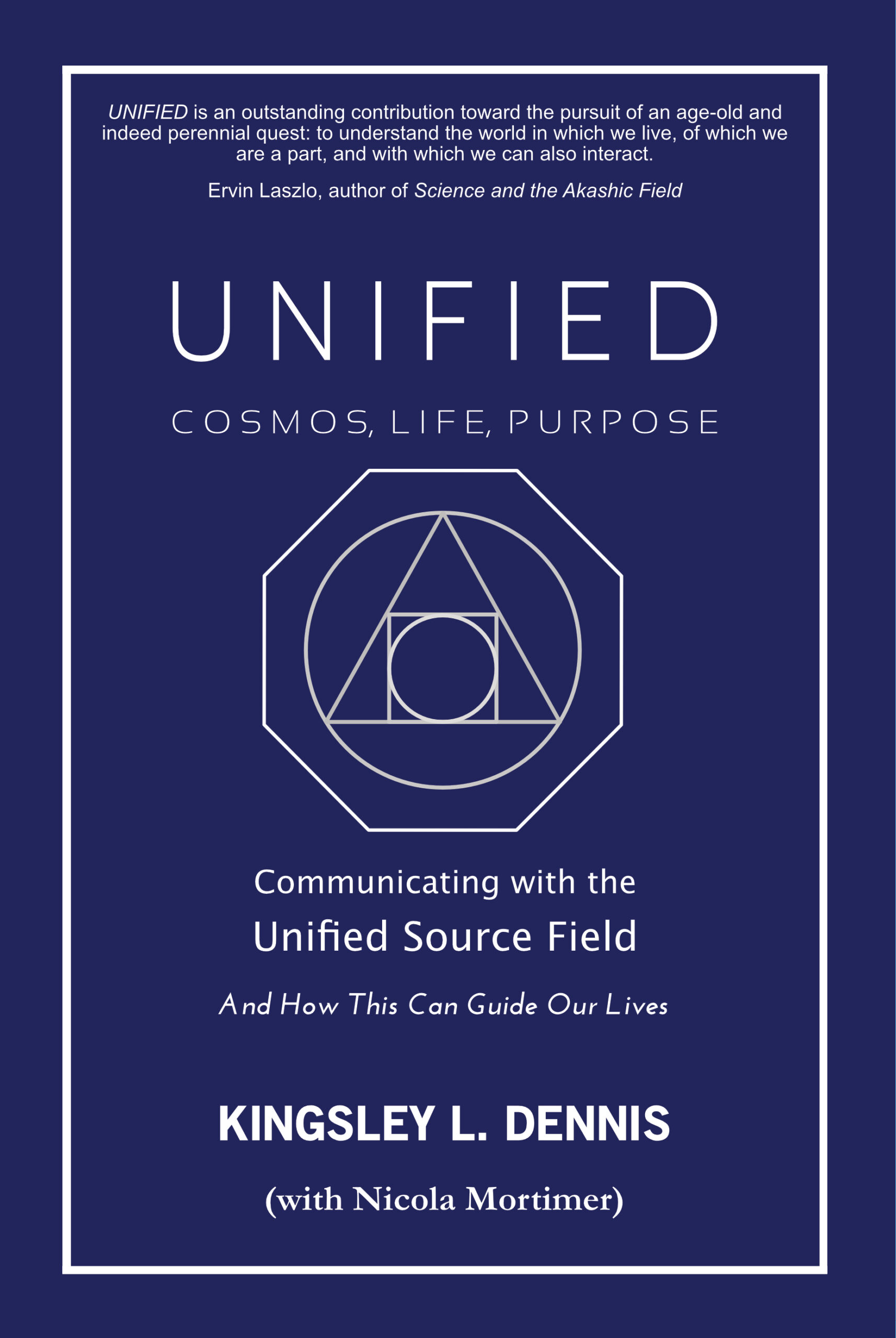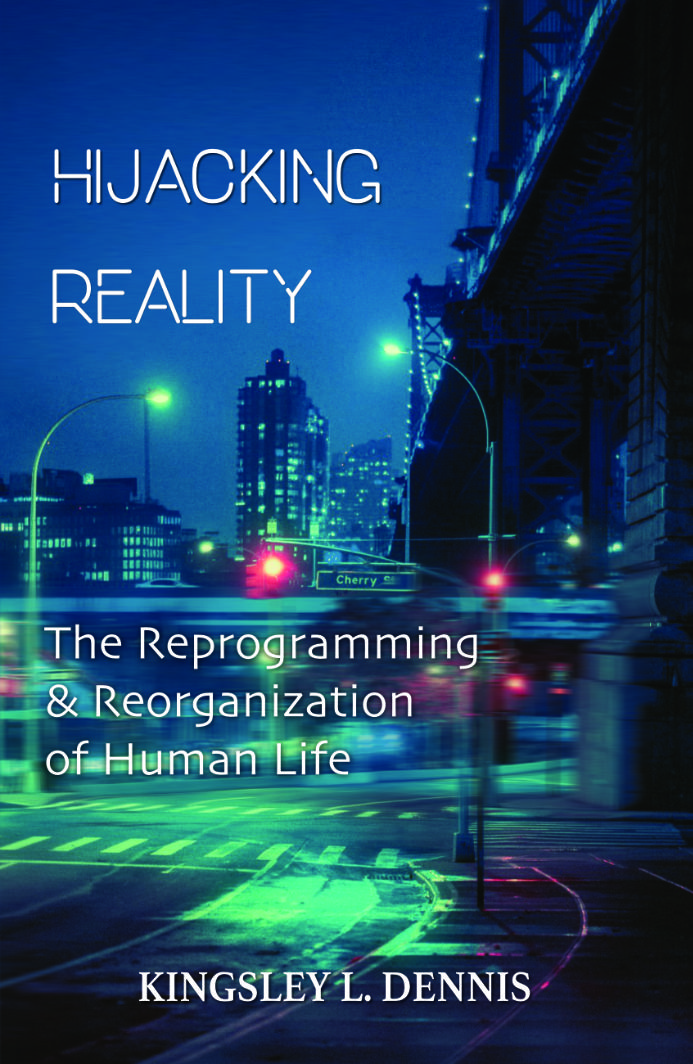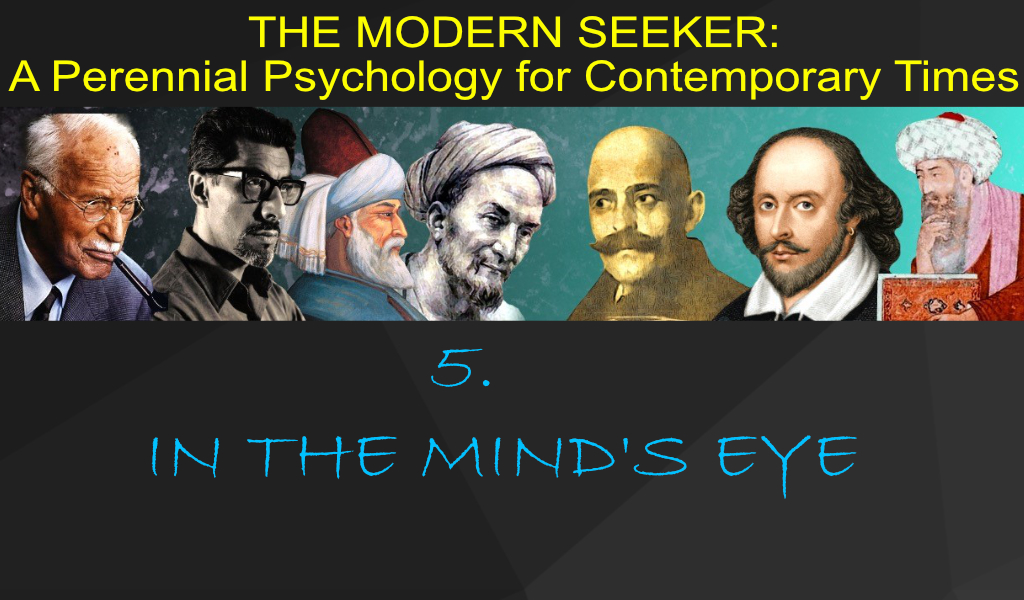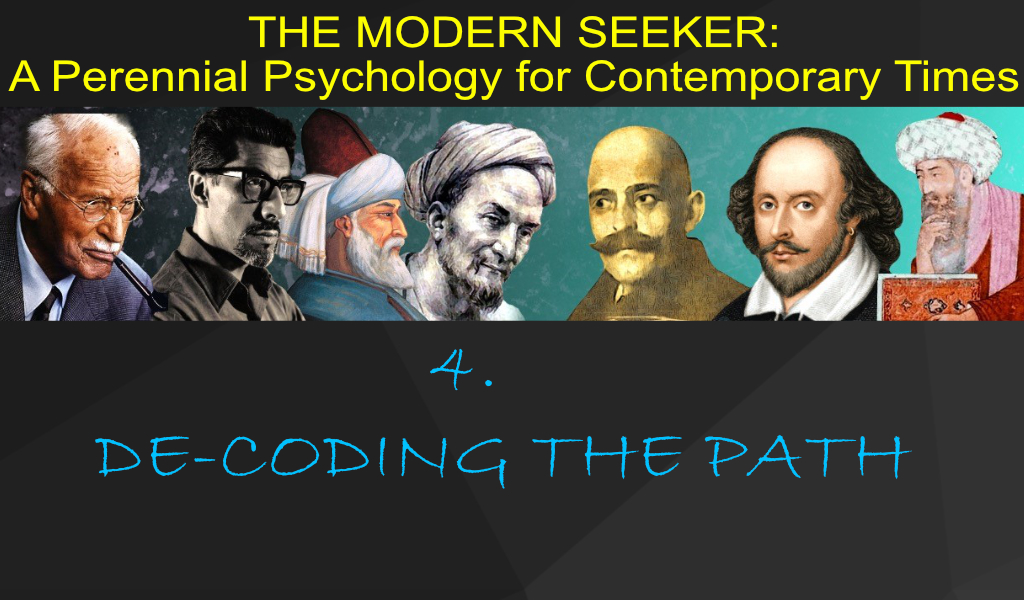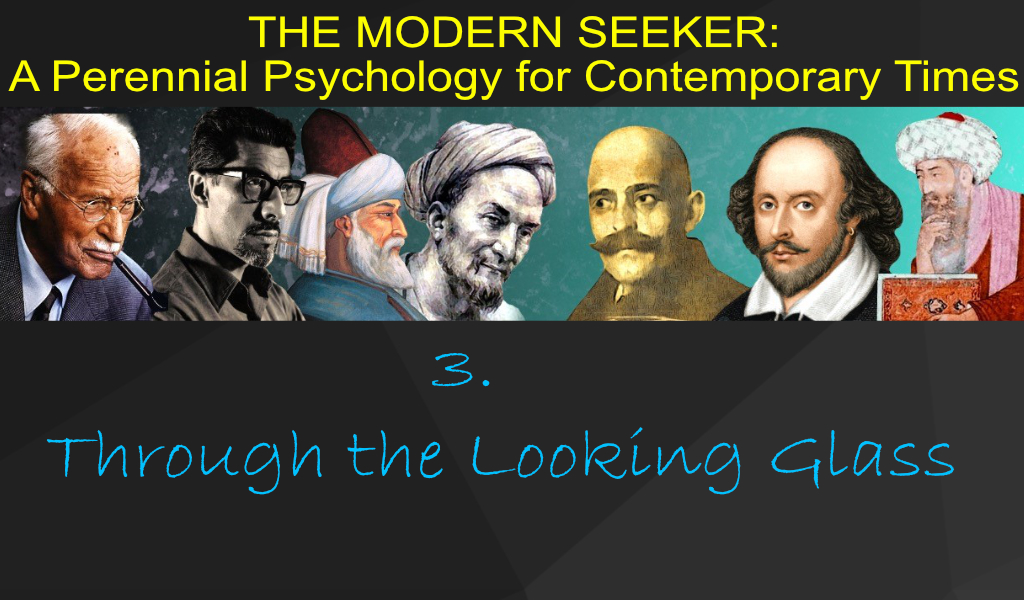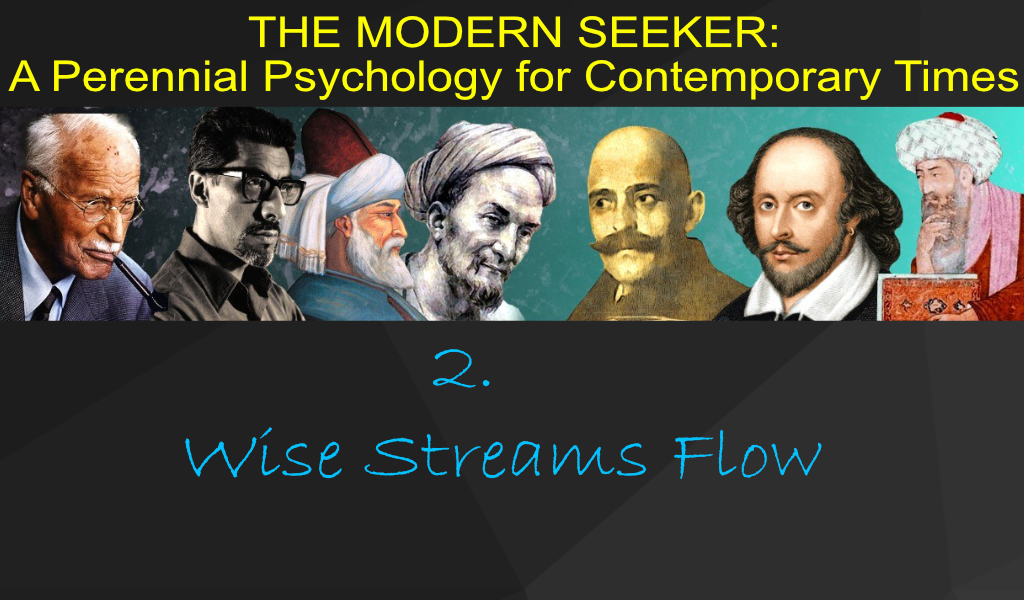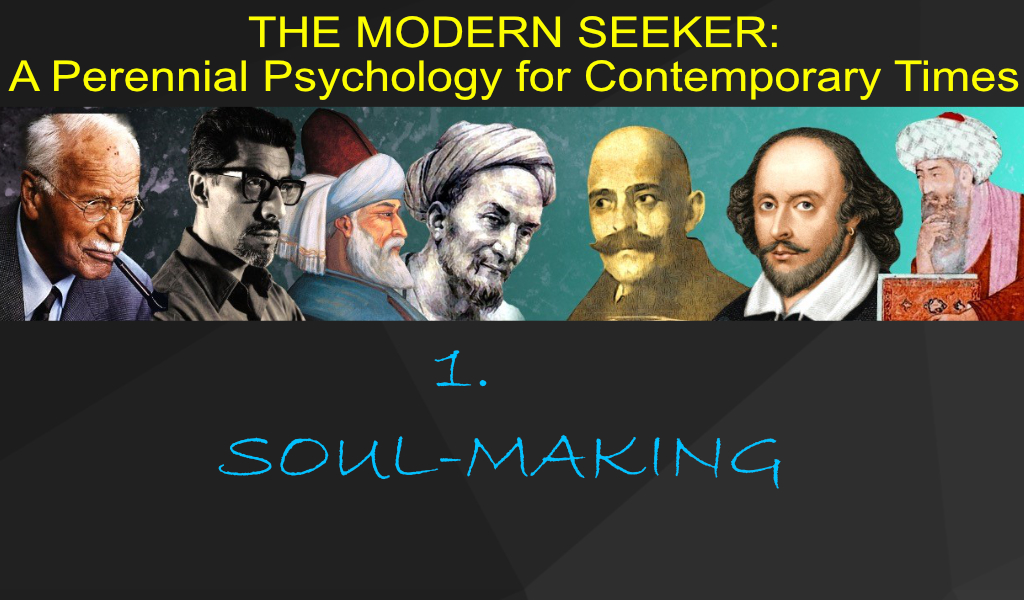For many people modern life can be said to have become an unbalanced distraction; or rather, the reality of our daily lives is a constant ‘attention distracter’. We suffer not from an attention deficit but from ‘attention overload’. This often then results in endless instances of misplaced attention. Too many of our social events, devices, interactions, etc, coerce us into placing our attention upon exterior gratifications; often at the expense of our inner condition. Many of us go through life as automatons, barely touching the epidermis of wakefulness. We are often out-of-synch with a reality passing before our lives; we literally need to shake the sleep from our eyes. There is too much ‘information’ but not sufficient meaning. Many western cultures put great store by the collection of information like greedy children. Yet we can be intellectual giants whilst at the same time being spiritual infants. However, we possess within us the means – in terms of capacity and potential – to develop great energies of awareness. It is therefore important how we deal with each experience, event, situation(s), and circumstances. We create meaning not by what happens to us, but rather how we respond to our circumstances.
Being more aware as a person first requires of us that we listen to ourselves. It then requires that we take great care in how we listen and interpret the external world. It is not a practice that requires one to be skinny and ascetic; nor need it be mystical or hysterical. In fact, it is more often humorous and straight-forward: more science than superstition. For many people the linkage between the exterior and interior worlds still remains murky and fuzzy. Most daily perceptions and thought processes remain constricted by layers of social conditioning and operate largely mechanically. It helps if we can begin by understanding how much ‘wrong thinking’ we perpetuate in regard to everything we claim as our own: our thoughts, views, beliefs, tastes, habits. In actual fact so much of our ‘baggage’ is formed through imitation or from our cultural patterns of conditioning. An old proverb says that ‘They that drink of the old wine have no place for the new’. Our ‘old wine’ has been provided by our social conditioning; and whilst they may vary according to various cultures, they all follow some fundamental basics.
With few rare exceptions all people are brought up within very clearly defined cultural parameters. These dominating parameters attempt to construct sets of accepted socio-cultural norms of thought and behaviour. These operate through such social mechanisms as personal faith/religion; science; language and emotions; denial and doubt; happiness and fear; safety and security (identity and belonging); status and materialism. In the end, we reinforce beliefs that have grown into us, accepting and defending them as our own. Of course, we only ‘believe’ those things that we want, or that fit within our perceptual paradigms. And we wish to support the investment we have made in ‘our beliefs’. Thus, people seek out and promote those activities and experiences that serve to reinforce and validate their own beliefs. People rarely seek out those experiences that will actively challenge their perceptions and thus create flexibility of thought. How many far-right conservatives would spend time reading the latest socialist newsletter? Yet the fixed idea is the enemy of free-thinking.
Our collective consensus reality is a bewitching spell. It is an illusory shared ‘reality’ that both fascinates and beguiles. Thus, to ‘awaken’ our faculties of perception and awareness a person needs to recognize the ways in which they think and react, and in doing so to develop their own inner strengths. The average person far too often acts on their thoughts and desires without taking responsibility for them. Thus, we need to assume the responsibility of our presence in the world. By taking responsibility in this way we make each moment and encounter our own. By not taking such responsibility we let events drift away from us, or are powerless to defend against their disruptive influence. To break the spell of our multi-layered social conditioning requires that a whole new system of perception is brought into being. It calls for mental, emotional, and energetic reserves of concentration that can replace a person’s old conditioning with terms of reference that are more positive and useful. Revitalizing these energetic and creative capacities is thus about managing one’s energy.
Managing One’s Energy
Energy is a force of material quantity and should be considered in terms of its quantitative value. Too many people too much of the time spend energy needlessly on unnecessary and unpleasant emotions, thoughts, and actions. Energy gets used up on expectations, mood swings, nervousness, irritability, wrong imagination, negative thoughts/intentions, self-pity, etc. Desires and misplaced attention, for example, are primary ways of losing this quantitative energy. The fanciful desires that come into us from our exterior social world distract and sap our energies. If we could but form small specific goals within our everyday life, and achieve them, this would create more permanent energy within us. As an exercise, try to begin with small aims that are realizable before moving onto larger goals. Allow these aims to be formed not from want but from need. To know what one needs is a higher form of thinking than by being influenced by wants.
A helpful formulation is Energy Retention, Energy Intention whereby storing and retaining as much personal energy as possible helps to strengthen other faculties. This personal energy can then be made available for physical aims and achievements through focused intention. A lack of a conscious aim within life goes hand in hand with unfocused and undisciplined interior energy. It is a basic fact of our lives that we give away our energy too easily. It is thus necessary to save, store, and manage one’s personal energy: even if for the primary reason that a person needs enough personal energy for self-evolution. Energy is often lost through unnecessary physical/muscular exertion; unfocused mental distractions; and emotional nervousness or stress.
The picture may become clearer if we consider that one of the functions of the human being is to assist in the movement of energies. Humans are agents of transmission – for themselves, for people around them, and for their environment. It can be said that humans both individually and collectively operate as transducers of energies. The human body is like a biological battery – it accumulates, develops, and distributes energies. As such it is necessary for a person to be in harmonious relations with their interactions: with people, situations, emotions, and physical posturing. These concepts are not new; in fact they form the basis of our everyday world. People often talk of sensing ‘bad vibes’ between people or even in a place. When something just doesn’t ‘feel right’ we need to trust these instinctual signs. It is our responsibility to find and nurture right alignments. For example, when in the presence of some people we may recognize that we always have a feeling of being drained of energy. It is as if these people were sucking the energy away from us. In these circumstances we can refer to such people as ‘psychic vampires’. Not because they are necessarily evil or dangerous but because their energy alignments are such that they ‘pull in’ the energy around them. The reasons for this are various, yet the outcome invariably the same. If it is not your function to ‘feed them’, then move away – just don’t entertain their energy.
The quality of a person’s energy fields/vibrations is thus relative to their mental and emotional condition. Negative mental states will be accompanied by discordant vibrations. Some of these vibrations will remain within the energy of the person’s body, affecting them physically, whilst the remainder will resonate into the exterior environment. Just as in the vibration of musical sounds, a person’s vibration affects the people around them by a form of ‘induction’. In simpler terms, everything is in resonance with every other thing. Every thought we have, every act we perform, has its direct and indirect results through the resonance and transference of energies. It is a universal law taught by all the perennial wisdom traditions that Like attracts Like. A person is liable to attract the positive just as they can attract the negative. One’s interior mental state is thus a valve to exterior energies and conditions. Being mindful of one’s thoughts and state of mind is primary to a disciplined management of personal energy.
If an external influence impacts upon your mental state, as in feeling stressed or confused, then create a mental ‘stop’. Assess the situation and re-start by calling forth and generating intent. By putting deliberate mental intention into a situation or event a person is creating an energetic force that both fuels and protects them. Similarly, to alter a disagreeable state of mind we each should seek out those activities that feel harmonious to us. For example, when the mind is confused or frustrated, we can listen to some relaxing music. Or we can go for a favourite walk in the woods or be near to Nature. By engaging in activities that create a favourable resonance we can learn to re-vitalize and plug our seeping energies. This is a necessary practice when dealing with energy management. After all, if you had a pot of gold you wouldn’t go about throwing out handfuls of gold coins. Why do the same with our individual quantities of personal energy? In this sense we need to be ever vigilant in how we exercise our attention.
Next time I shall discuss exercising self-vigilance and the technique of stepping away.



